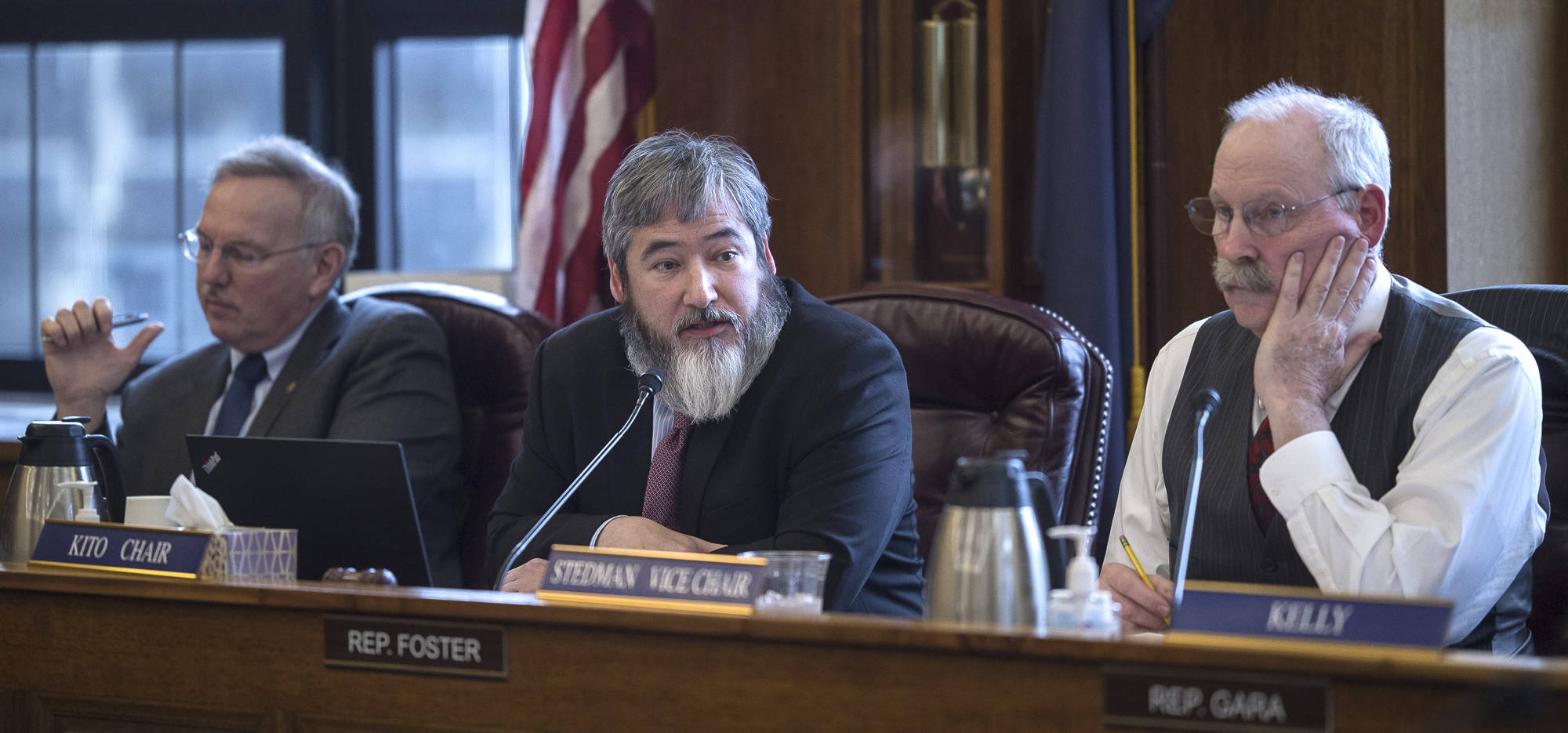Members of the Alaska Legislature rejected a proposed pay cut late Monday, saying they didn’t have time to adequately consider the idea from Rep. Sam Kito III, D-Juneau.
As proposed by Kito, lawmakers would have lost three-quarters of their per diem expense payments starting next year. Kito, who is not running for re-election, proposed the move after the State Officers Compensation Commission removed all per diem payments for lawmakers who live within 50 miles of the Legislature. As long as the Legislature works in Juneau, that applies only to the three lawmakers who represent the capital city.
“The situation as it rests is infinitely inequitable to those legislators who are residing in Juneau,” Kito said during a meeting of the Legislative Council, the joint House-Senate panel that sets internal policy for the Legislature.
“I felt compelled to bring it forward,” he said.
[Juneau Rep. Sam Kito III will not run for re-election in 2018]
Kito’s suggestion was rejected 1-13 by the Legislative Council, with even his nominal allies turning him down and voting to preserve their expense payments.
Earlier this year, Rep. David Guttenberg, D-Fairbanks, proposed legislation that would have rejected the per diem cuts for Juneau lawmakers, but on Monday night, he opposed Kito’s motion. The compensation commission acted poorly in its recommendation, Guttenberg said, but that doesn’t excuse lawmakers for acting hastily, too.
“There’s a long and larger dialogue to go forward if we were to do these recommendations from you, Mr. Chair,” he told Kito.
He added that the Juneau lawmaker’s suggestion was “as inequitable as anything I have seen.”
Kito responded that he fears the compensation commission’s recommendations will become the new normal, leaving Juneau lawmakers perpetually behind their colleagues. (Juneau lawmakers had already received a lower per diem payment rate.)
“I do fear … that Juneau will end up short,” Kito said.
Sen. Peter Micciche, R-Soldotna, suggested that Kito’s idea was in effect a parting shot by a lawmaker who is leaving before the next session.
“I just wonder what question we’re addressing,” he said. “I feel like the question is, respectfully, how do we get back at the other 57 (lawmakers).”
Micciche added: “The question should be: What is a fair rate?”
Ordinarily, lawmakers are paid $50,400 per year. They also are eligible for per-day expenses for every day the Legislature is in session. Those expenses are intended to offset the cost of lodging and food while working away from home. Where salary pays for home expenses, per diem covers a “second home” in Juneau. Lawmakers have previously said that without per diem, only Alaskans with other sources of income can afford to serve in office.
That’s particularly true in Kito’s case: He is the only single parent in the Legislature who does not also receive a pension or other stipend. (One other lawmaker is in an unmarried relationship with a child.) Kito said at the start of the session that while the state’s Constitutional framers envisioned a part-time “citizen” Legislature, the extended length of recent sessions — more than 210 days last year — precluded him from finding work as a licensed engineer. That was one of the most significant reasons behind his decision to not run for re-election, he said.
Per diem is set at federal rates: $275 per day during the winter (ending May 1) and $295 per day for any day after that.
Last year’s extraordinary session length created extraordinary per diem bills, even though many legislators left Juneau while negotiations stalled. Sen. Bert Stedman, R-Sitka, collected $51,484 in per diem atop his salary last year. Stedman stood in as the Senate Majority’s sole representative in the Capitol on many days. On the House side, House Minority Leader Charisse Millett, R-Anchorage, took that role and collected $51,434 in per diem.
Lawmakers also receive an office expense allowance (up to $12,000 for each House member or $20,000 for each Senate member) and reimbursement expenses for moving to and from the capital city at the end of the session.
Sen. Donny Olson, D-Golovin, claimed $32,591 in moving expenses during 2017; Rep. David Eastman, R-Wasilla, had the second-highest moving expenses at $13,735.
According to the federal Bureau of Labor Statistics, Alaska’s average annual salary is $57,750; chief executives earn $171,510 on average in Alaska.
• Contact reporter James Brooks at jbrooks@juneauempire.com or 523-2258.

